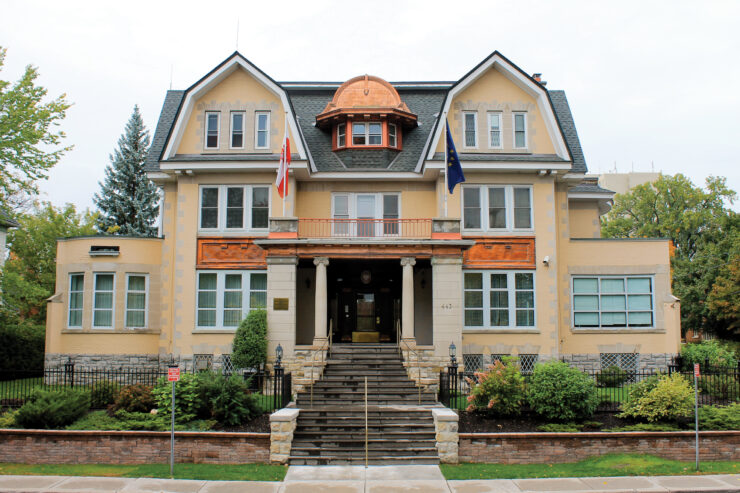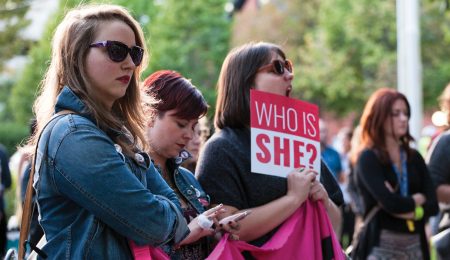History scholar’s article in Maclean’s leads to rebuttal by Polish diplomats
On Sept. 30, Łukasz Weremiuk, chargé d’affaires of the Polish Embassy in Ottawa, submitted an article to Maclean’s to refute a separate item written by Jan Grabowski, a history professor at the University of Ottawa.
Grabowski, who specializes in the history of the Holocaust, criticized Poland’s new legislation, which calls for the imprisonment of anyone who claims that Poland was complicit with the Nazis during the Holocaust. In the Sept. 20 article, he said that this new legislation is “the latest dark turn in the country.”
Grabowski spoke to the Fulcrum about his original article and why he wrote it, saying that the new legislation in Poland will stifle a generation of students who want to learn more about the Holocaust and Poland’s place in it.
“Imagine you are a student now in Poland and you are looking for a graduate career in history, and in the light of this legislation probably the last thing you will want to touch is anything remotely linked to the so-called ‘delicate issues’ … you will feel the sweeping effects of the legislation,” said Grabowski.
Shortly after Grabowski’s article was published, the Polish government responded with their own piece challenging Grabowski’s claims.
In the piece, Weremiuk wrote “The new legislation mentioned by Mr. Grabowski is a draft of an amendment to an existing Polish law that has been in force since 1998, protecting our collective memory against defective codes of memory.”
In a response to this statement, published alongside Weremiuk’s article, Grabowski said that Weremiuk is wrong, as the proposed legislation in Poland extends far beyond simple penalizing.
In his Sept. 30 article Weremiuk defended Poland, writing, “There was no free Poland during the Second World War, and the Holocaust was the murder by Nazi Germany of six million Jews. Poland, unlike many countries, was never an ally of Nazi Germany and never had a collaborative regime.”
However, Grabowski believes it’s way too easy to lay the entirety of the blame at the foot of Nazi Germany.
“What (Weremiuk) wants to say simply is if you have someone to blame, blame the Germans. And of course nobody denies it, the Germans are responsible for the entire scheme of the extermination,” he said. “However, inside the scheme there were various actors and they were performing various things and we have to talk about it.”
According to Grabowski, his intention in writing his original article was not to attack Poland, as Weremiuk accuses him of doing.
“What I find is that the current government is attacking Poland—it’s anti-Polish because they are giving a bad name to the entire country. I mean this kind of noxious legislation doesn’t only make Poland a laughing stock to academics around the world, it spreads to liberty of free expression,” said Grabowski.
Grabowski also believes that this legislation not only affects people living in Poland, but also those outside the country, including non-Polish citizens.
“They can basically make people suffer with lawsuits on the civil side. Even if you are innocent after many years of litigation, it is a small consolation to you.”
“Distortion of the Holocaust is a form of Holocaust denial. If you deny that there was a level of complicity of the part of the Polish population then you are distorting the history of the Holocaust and that is what I am strongly objecting to.”





